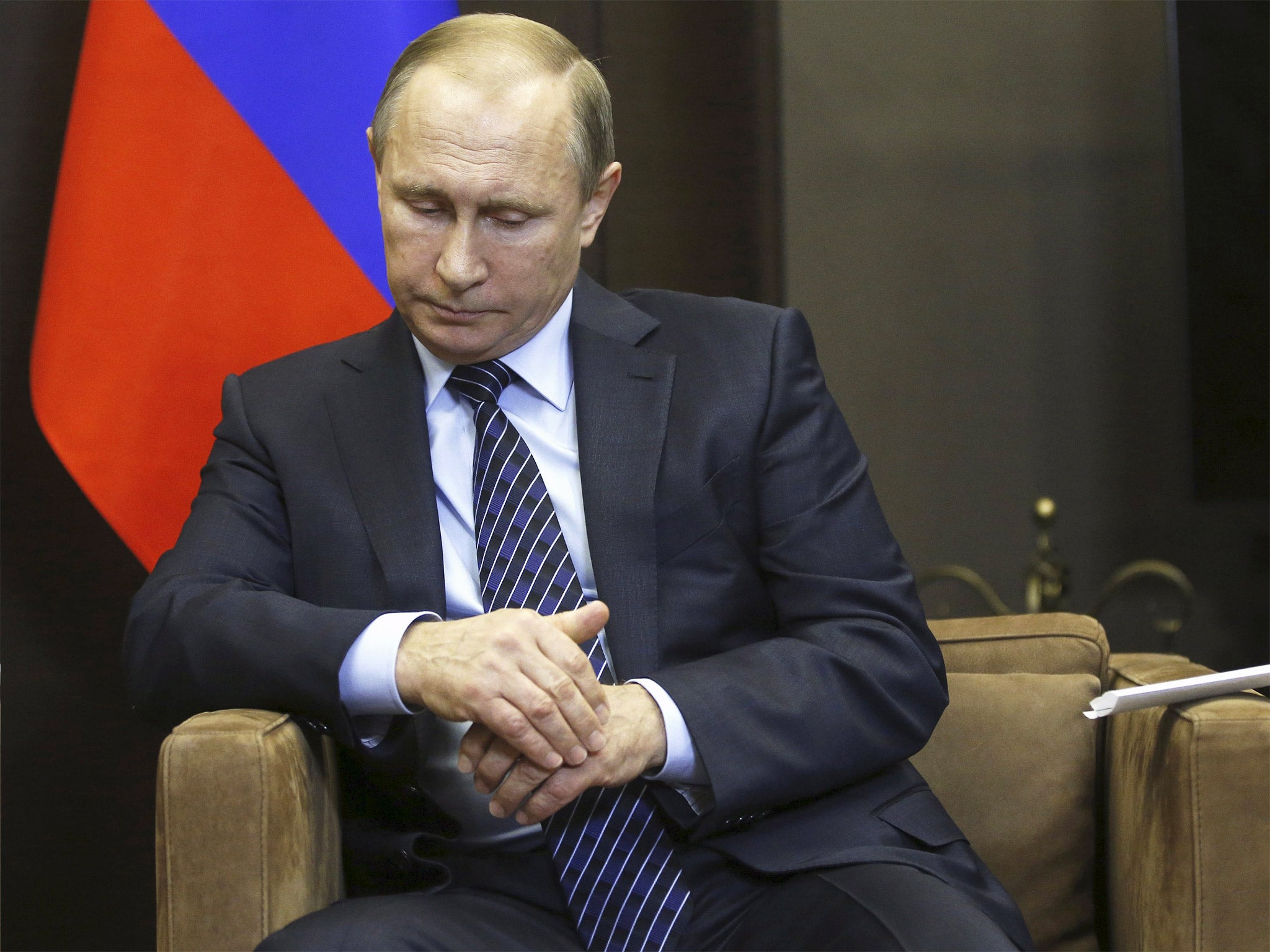A long history of tension underlies Turkey's downing of Russian jet
Turkey is part of a front determined to oust Mr Assad, while Russia supports the embattled Syrian leader


Your support helps us to tell the story
From reproductive rights to climate change to Big Tech, The Independent is on the ground when the story is developing. Whether it's investigating the financials of Elon Musk's pro-Trump PAC or producing our latest documentary, 'The A Word', which shines a light on the American women fighting for reproductive rights, we know how important it is to parse out the facts from the messaging.
At such a critical moment in US history, we need reporters on the ground. Your donation allows us to keep sending journalists to speak to both sides of the story.
The Independent is trusted by Americans across the entire political spectrum. And unlike many other quality news outlets, we choose not to lock Americans out of our reporting and analysis with paywalls. We believe quality journalism should be available to everyone, paid for by those who can afford it.
Your support makes all the difference.The downing of an SU-24 jet by Turkey will go down as the first time since the start of the Cold War that a Nato member has shot down a Russian military aircraft. Yet it is but the latest twist in centuries of tangled, and frequently tense, relations between two countries which geography, history and religion have made rivals.
That rivalry took concrete shape from the 16th century with the emergence of two great empires. Moscow saw itself as the third Rome, bulwark of Eastern Christianity after the fall of Constantinople in 1453 to the Ottoman Turks. The Ottomans in turn were expanding their own empire into the Middle East and the Balkans, populated by Orthodox Slavs of whom Orthodox Russia was a protector.
Inevitably, the competing interests generated conflicts. Best known in the West is the Crimean war of 1853–1856, pitting an alliance of Turkey, Britain and France against Russia, and caused in part by Moscow’s demand to exercise protection over the Christian subjects of the Sultan. That war ended indecisively. But not so the Russo-Turkish war of 1877-1878, which produced a clear Russian victory and the creation of an independent Bulgarian state.
The First World War led to the destruction of both empires, and to drastic changes of regime in both Russia and Turkey. At first ties between the new Soviet Union and secularised Kemalist Turkey notably improved, and Russia abandoned claims to parts of north-eastern Turkey and to the Turkish Straits that allowed it access to the Mediterranean. But they deteriorated with the Convention of Montreux in 1936, which returned full control of the straits to Ankara.
In the Second World War, as the Soviet Union bore the full brunt of the Nazi onslaught, Turkey remained neutral, angering Moscow with its permission for German warships to use the straits. In 1945, a victorious Stalin demanded once more a share in their control. The West refused, and throughout the 45-year Cold War, Turkey and Russia were on opposite sides.
In 1952, Turkey joined Nato, becoming the alliance’s second member to share a border with the Soviet Union, and its easternmost rampart against Moscow. In 1962 it was a key factor in the resolution of the Cuban missile crisis, when the Kennedy administration agreed to withdraw its missiles from Turkey.
With the demise of the Soviet Union, Turko-Russian relations again improved steadily, producing a string of manufacturing and energy agreements. Annual bilateral trade now runs at $33bn (£22bn), making Russia Turkey’s second largest trading partner after Germany.
But even before the clash over Syria, Russia’s annexation of the Crimea and its interference in eastern Ukraine were alarming Ankara. Now Russia and Turkey are at odds again: the former in an alliance with Iran to prop up the Assad regime, while Turkey is part of a front with Saudi Arabia and other Gulf States determined to oust Mr Assad.
Join our commenting forum
Join thought-provoking conversations, follow other Independent readers and see their replies
Comments